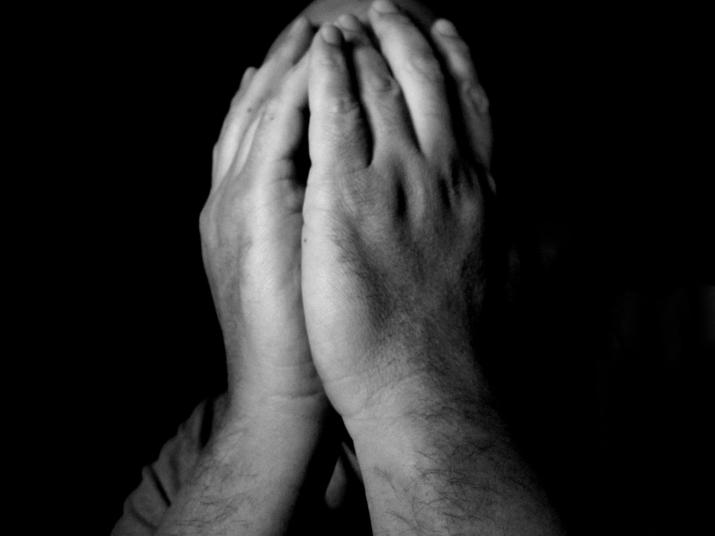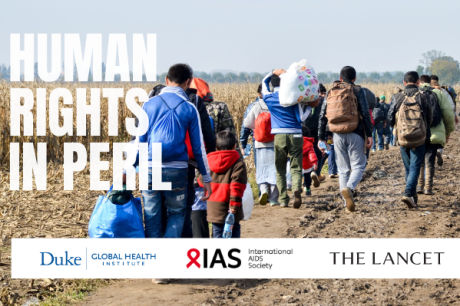
Photo credit: frankieleon on Flickr: https://www.flickr.com/photos/armydre2008/ 5451746855/in/photolist-9iKCpr-6EfBvw-7aooxQ-7iq7mJ-6xMHTn
Published January 28, 2016, last updated on October 12, 2017 under Voices of DGHI
By Elizabeth Monahan, 1st-year MSc-GH student
In many low- and middle-income countries around the world, cancer has a stigma.
This fact is one of the most interesting things I learned during a lecture last fall by DGHI’s Dr. Yousuf Zafar. I’d never thought about this before, because everyone I’ve ever known who has had cancer was incredibly supported economically, emotionally, and physically by the surrounding community. Nobody was looked down upon or ostracized because they had been diagnosed with cancer. Of all the reasons to fear being diagnosed with cancer, facing a negative stigma is something that I never would have considered.
After listening to Dr. Zafar’s lecture, I began to think of all the downstream effects of a communal negative stigma surrounding cancer.
Hesitance to Seek Care
We know that one of the best ways to increase somebody’s chance of survival is to diagnose their cancer early. If there is a negative stigma regarding cancer, the chances that somebody is going to go to a clinic or the hospital to take part in early detection measures, or even go in when they start to suspect that something is wrong, is probably lower than in areas where there is not a negative communal stigma regarding cancer.
This results in cancer being caught in much later stages, and results in lower survival chances. This means that a negative stigma is potentially contributing to higher rates of mortality due to cancer. However, this stigma can also affect the lives of patients as they fight cancer and the lives of their families.
Little Financial Support from Others
A negative stigma surrounding cancer is going to affect people financially. I’ve seen communities rally around people who have been diagnosed with cancer to help support them financially by hosting fundraisers and making meals for the patient and their families to help with the financial burden of cancer treatments. If a community finds having cancer shameful, they will not be inclined to help the individual with cancer or their family economically if the family needs economic support.
If a family or patient cannot afford cancer treatment, both the family and the patient suffer from both not receiving the necessary treatment and from knowing that there is nothing that they can do to get the treatment if they cannot afford it, which leads to another aspect of the fight against cancer that a negative stigma can affect.
Emotional Toll
A negative perception of cancer is also going to affect the person with cancer and his or her family emotionally. A friend of mine said that the support that he received from friends and family when he was diagnosed with leukemia played a huge role in helping him get through his toughest days, and that he could not imagine having to go through his cancer treatments without the support of all the people around him.
As humans, we draw strength from each other; positivity, kindness and words of encouragement are infectious and desperately needed in all situations—especially in our toughest moments. While feeling supported will not cure cancer, positivity and support, even in a small amount, can never hurt. A negative stigma surround cancer negates the chance of the person with cancer receiving the support that they need from the people around them, and unfortunately could leave them feeling incredibly alone.
Lack of Research Support
Another aspect of the fight against cancer that a negative stigma can affect is research. If people have a negative perception about cancer, they are not going to want to donate to cancer organizations or even listen to what these organizations are saying. Organizations that support cancer research will not receive the support that they need to function, and cancer research will not be adequately funded.
Furthermore, governments may feel less inclined to help fund cancer research if they fear losing the support of their people, or even a small portion of their supporters, over this issue. Cancer research is extremely expensive and multi-faceted because not all cancers can be treated the same way, so many drugs and therapies are needed. This means that strong funding is absolutely necessary to continue to make advances towards finding a cure for cancer.
Stopping Stigma Is Critical in Fight against Cancer
Finding a cure for cancer has not and will not be easy, and neither will changing the negative stigma surrounding. I’m sure that there are many areas of life that this negative stigma can affect for cancer patients and their families, but the above mentioned areas were what I immediately thought of during Dr. Zafar’s lecture. After thinking about these areas, I believe that in order to truly find a cure for cancer, we also need to work to change this negative stigma surrounding cancer in order to give people fighting cancer the support that they need and deserve.
This blog post was originally published on the class blog for the Fall 2015 Global Health Challenges class and was republished with permission from the author.


